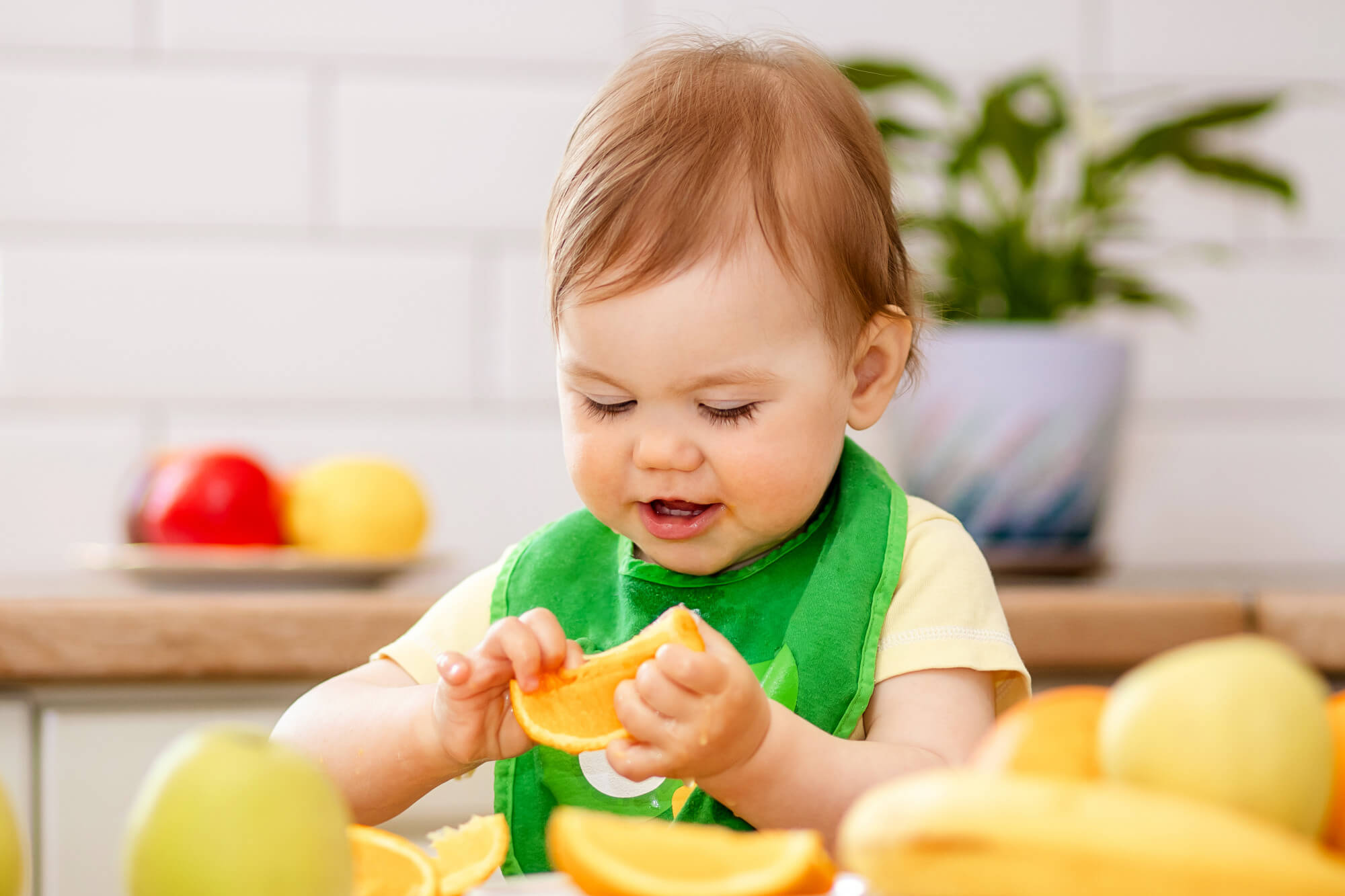Food allergies in infants: symptoms, causes and treatment


Irina Makarova
More and more children are dealing with food allergies, especially in infants and toddlers. In this article, an experienced allergist will tell you about food allergies in babies, their causes, symptoms, and how formula allergies and complementary food allergies manifest themselves. You will learn about the gf diet, menus for an 8 month old baby, and more.
What are food allergies in a baby?
A food allergy in a baby is the body's immune response to certain foods. This condition can occur in children under a year old due to the immaturity of their immune system. The main risk factors are genetic predisposition, improper introduction of complementary foods and environmental exposure.
Differences between food allergies and intolerances
It is important to understand the difference between food allergies and intolerances. Allergies are related to the immune system and can cause serious reactions, up to and including anaphylactic shock. An intolerance, on the other hand, is not related to the immune system and causes less dangerous reactions, such as stomach and intestinal upset.
Causes of food allergies in the infant

- Genetic predisposition plays an important role in the occurrence of food allergies in an infant. If one or both parents suffer from allergies, the likelihood of the baby developing allergies increases.
- When introducing complementary foods, certain rules and patterns must be followed in order to minimize the risk of developing food allergies in the infant. Incorrect introduction of complementary foods can provoke an allergic reaction to certain foods.
- Environmental factors such as air pollution, secondhand smoke, and dust mites can contribute to the development of food allergies in infants.
Common allergens in baby foods
- Cow's milk is one of the most common allergens in baby food. Milk allergies can manifest as skin, gastrointestinal, and respiratory symptoms.
- Eggs are another common allergen. Egg allergies can cause rashes, swelling, itching, nausea and vomiting.
- Soy products, such as soy milk and tofu, can also cause allergic reactions in infants.
- Gluten is a protein found in wheat, rye, and barley. Gluten allergies can cause symptoms such as digestive upset, itching, rashes, and fatigue.
- Fish and seafood can cause allergic reactions in children, especially those who are genetically predisposed to allergies.
- Nuts and seeds are also common allergens and can cause symptoms such as itching, rashes, swelling and respiratory problems.
Symptoms of food allergies in a baby

- Skin manifestations of food allergies include rashes, hives, itching, swelling, and eczema.
- Gastrointestinal symptoms of food allergies in infants may include nausea, vomiting, diarrhea, constipation and abdominal pain.
- Respiratory symptoms of allergies in children under one year of age may manifest as nasal congestion, runny nose, sneezing, coughing and shortness of breath.
- Common signs of food allergies in infants include fatigue, irritability, and poor appetite and weight loss.
Diagnosing food allergies in a baby
If food allergies are suspected in an infant, you should see a pediatrician, who will take a history and examination, assessing the child's condition and symptoms.
- Blood tests for allergens can help determine which foods your baby is allergic to.
- Skin tests may also be done to determine the allergens that are causing the baby's reaction.
- In some cases, the doctor may recommend provocation tests, during which a small amount of the suspected allergen is given to the child to observe the body's reaction.
Treatment and prevention of food allergies in the infant

The main method of treating food allergies in the infant is to eliminate allergenic foods from the infant's diet and the nursing mother's diet.
A nursing mother is recommended to follow a hypoallergenic diet, eliminating from her menu the foods that cause allergies in the baby.
Probiotics and prebiotics can help strengthen the infant's immune system and improve the condition of his gut. Your doctor may recommend appropriate medications to treat your baby's food allergies.
In some cases, when an infant's allergies are severe or cannot be treated, the doctor may suggest immunotherapy. This is a treatment method that involves administering small doses of an allergen in order to gradually get the body used to it and reduce the allergic reaction.
Recommendations for introducing complementary foods to prevent allergies
To prevent food allergies in your baby, it is important to introduce proper complementary foods. You should start with non-starchy vegetables such as pumpkin, cauliflower or broccoli. Then gluten-free oatmeal, fruit and meat products can be introduced. It is recommended that new foods be introduced one at a time, 5-7 days apart, to watch for possible allergic reactions.
Food allergy in a baby is a serious condition that requires attention and the right approach. Timely contacting the doctor, following a hypoallergenic diet and the correct introduction of complementary foods will help to reduce the risk of allergies in your baby and ensure his healthy development.
Related Materials
- How to recognize an allergy on the baby's butt: the most common symptoms
- How to help a child with atopic dermatitis: helpful tips and advice
- How to treat allergic rhinitis in children
- Treatment of contact dermatitis in children: effective methods
- Food allergies in children: symptoms, diagnosis and treatment
New materials
Popular Articles
We recommend reading
Contact us in the Contact Us section to ask questions, offer ideas, or for more information about our allergy resource.
Our articles are your trusted source of allergy knowledge. Learn how to make life with allergic reactions easier on our specialized portal.
©
Lechenie-Allergii.com. All rights reserved.
© Lechenie-Allergii.com. All rights reserved.
The information on this site is for informational purposes only and is not a substitute for professional medical advice. We recommend consulting with qualified medical professionals for accurate information and advice.
 English
English  Українська
Українська  Русский
Русский 









